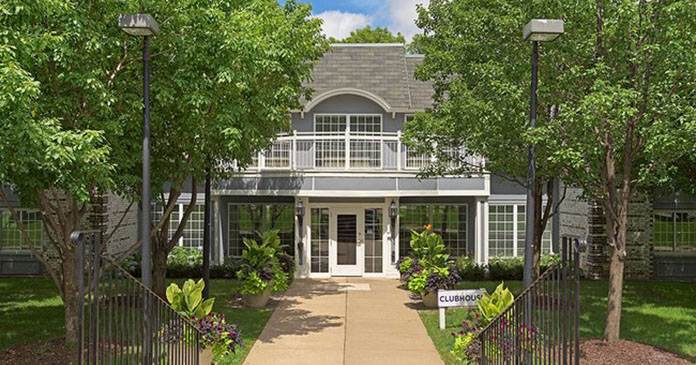Today Aeon, a nonprofit developer, owner, and manager of affordable homes, completed the purchase of Village Club Apartments, a 306-apartment property in Bloomington. Key partners in the acquisition include the City of Bloomington, the Housing and Redevelopment Authority of the City of Bloomington, and National Equity Fund. Twin Cities Local Initiatives Support Coalition also provided leadership and funding commitments to support improvements at Village Club.
The City of Bloomington provided critical assistance in the acquisition with its first investment from its new Housing Trust Fund, recently approved by the City Council.
“We are proud to work with the City of Bloomington as it provides groundbreaking leadership to preserve and create affordable housing for all residents,” said Aeon President & CEO Alan Arthur. “We’re excited to partner with National Equity Fund for the first time on a NOAH acquisition. By supporting Aeon’s purchase of Village Club, our partners were able to keep hundreds of individuals and families in their homes.”
Village Club Apartments is an example of naturally occurring affordable housing (NOAH) properties that have aged into affordability. Aeon has purchased more than 2,000 NOAH apartment homes in the past several years, keeping rents affordable. Village Club is a mixed-income acquisition, with more than half of the units affordable at or below 60% of area median income. The remaining units will be affordable at or below 80% of area median income.
NOAH affordability is threatened in the Twin Cities’ strong real estate market where a growing number of building sales are leading to increased rents, pricing out current residents, and resulting in their displacement. In Minneapolis alone, more than 1,800 NOAH apartment homes were lost in 2017 according to Minnesota Housing Partnership’s 2018 Market Watch report.
Preserving existing affordable homes benefits communities by keeping residents in their homes and children in their schools. It also ensures that aging properties remain long-term assets to the community.













